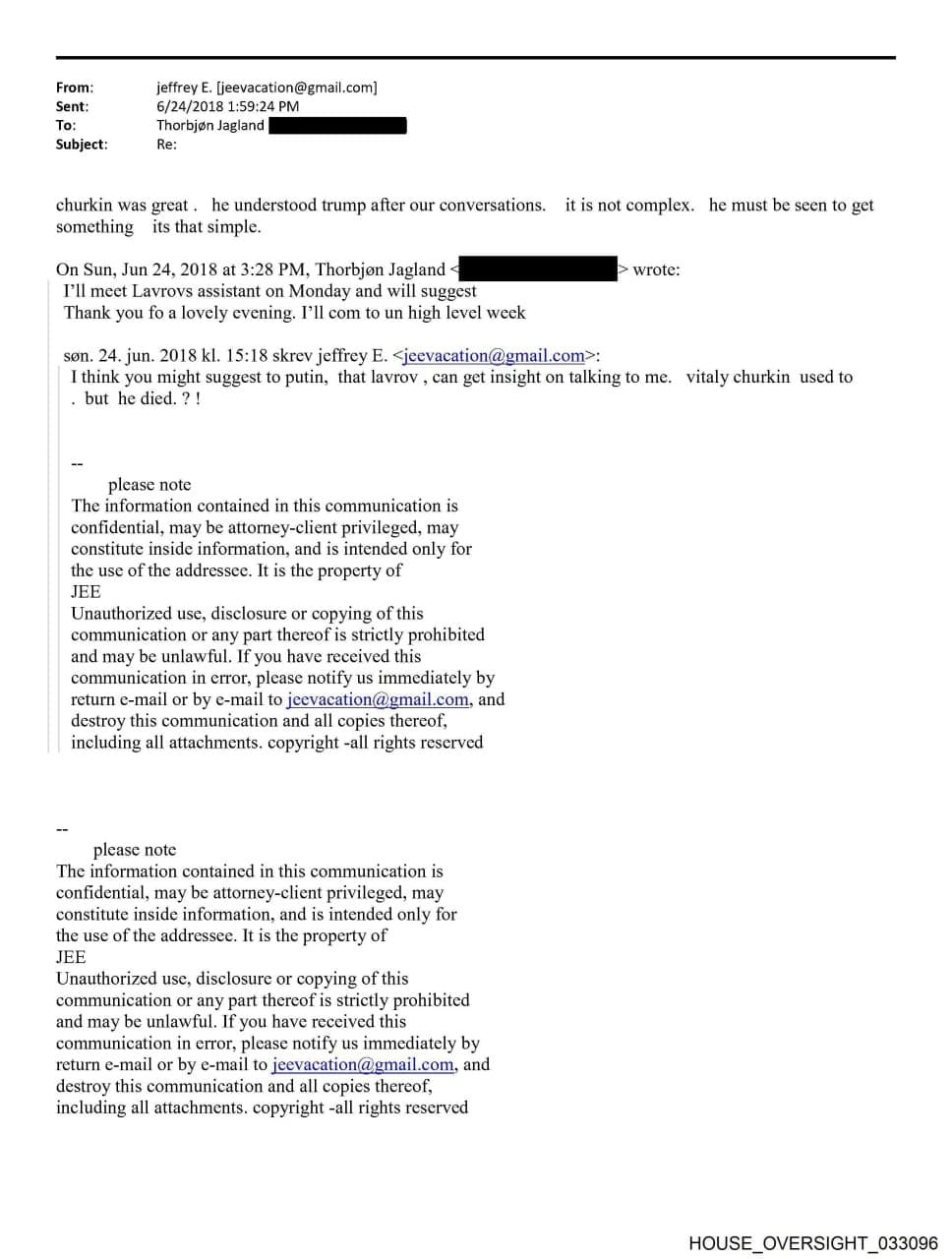Epstein Emails Reveal 2018 Offer to Aid Russia on Trump Insights
In a significant development, declassified congressional emails have surfaced revealing that the late financier Jeffrey Epstein reached out to former Norwegian Prime Minister Thorbjørn Jagland in June 2018. The emails suggest that Epstein offered to facilitate communication between Russian President Vladimir Putin and U.S. officials regarding insights on then-President Donald Trump, particularly in the lead-up to the Helsinki summit held on July 16, 2018.
Key Details
On June 24, 2018, Epstein sent an email to Jagland, proposing that Putin direct Russian Foreign Minister Sergei Lavrov to consult him for insights about Trump. This email indicates Epstein"s desire to position himself as a knowledgeable intermediary in U.S.-Russia relations during a critical period in international diplomacy.
In his communication, Epstein referenced previous discussions with the late Vitaly Churkin, who served as Russia"s Ambassador to the United Nations until his death in February 2017. Epstein claimed, "He understood Trump after our conversations. It is not complex," suggesting that he believed he had valuable insights into Trump"s mindset and approach to governance.
The Helsinki summit, which took place shortly after Epstein"s email, was a pivotal meeting between President Trump and President Putin. It garnered significant media attention and public scrutiny, particularly regarding the implications for U.S. foreign policy and national security. The summit was marked by Trump"s controversial statements regarding U.S. intelligence assessments of Russian interference in the 2016 presidential election.
Background
Jeffrey Epstein, a financier and convicted sex offender, was known for his connections with high-profile individuals across various sectors, including politics, business, and entertainment. His controversial relationships have led to extensive investigations into his activities and the implications of his connections. The emails released as part of congressional declassification efforts provide further insight into Epstein"s attempts to influence political discourse and international relations.
Thorbjørn Jagland, who served as Prime Minister of Norway from 1996 to 1997 and later as Secretary General of the Council of Europe, has been involved in various international diplomatic efforts. His interactions with Epstein highlight the complex web of relationships that existed between influential figures in politics and Epstein.
What"s Next
The release of these emails raises questions about the extent of Epstein"s influence and the potential ramifications for U.S.-Russia relations during Trump"s presidency. As investigations into Epstein"s activities continue, these revelations may prompt further scrutiny of the connections between political leaders and individuals with controversial backgrounds.
As previously reported, Epstein"s interactions with prominent figures have drawn attention to the potential for conflicts of interest and ethical considerations in political dealings. The implications of these communications could reverberate through ongoing discussions about foreign influence in U.S. politics and the integrity of diplomatic engagements.
For more on related coverage, see our article on new emails showing Jeffrey Epstein met with Trump and Prince Andrew in 2019.



![[Video] Gunfire between Iraqi security forces and Sadr militias in Baghdad](/_next/image?url=%2Fapi%2Fimage%2Fthumbnails%2Fthumbnail-1768343508874-4redb-thumbnail.jpg&w=3840&q=75)
